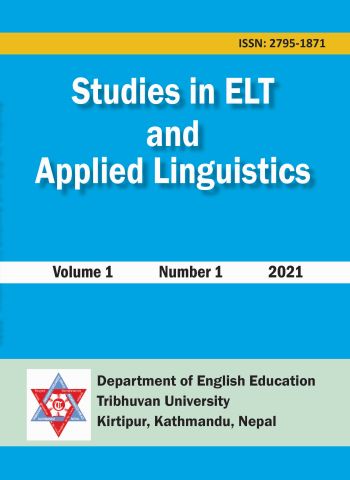Immense Power of English Language: Shall our Teachers Exploit or Avoid it?
DOI:
https://doi.org/10.3126/seltal.v1i1.40603Keywords:
translation, transcription, transcultural, transliteration, deconstruction, ecological encroachmentAbstract
We have realized the importance of English. About 150 years of English courses in Nepal has proved this. Yet we have not reached the desired level of it. All the efforts made by Nepal English Language Teachers' Association (NELTA) are to promote and improve English in terms of its quality and quantity both. We need more English, better English, faster and deeper every decade at the cost of the national language. Even we need it at the cost of the languages of the nation. They have already suffered a great loss by yielding before English at the cost of everything, specially, the culture. But our efforts are focused on a stereotype of English, teaching some rules of second language teaching and learning. Underpinned heavily by theories of educational psychology, our English teaching is rule governed so our students do not see, feel, and touch the depth of real English. That is, because our focus is on teaching a special kind of English that is constrained to grammar, vocabulary and pronunciation. All structural things, all basic. Other nations have exploited English for diverse purposes. One among them being reading and writing; creative works and practicing translation of our languages. Thus, in this short write up, I have traced the importance of English to Nepalese learners in its different dimensions of use.




